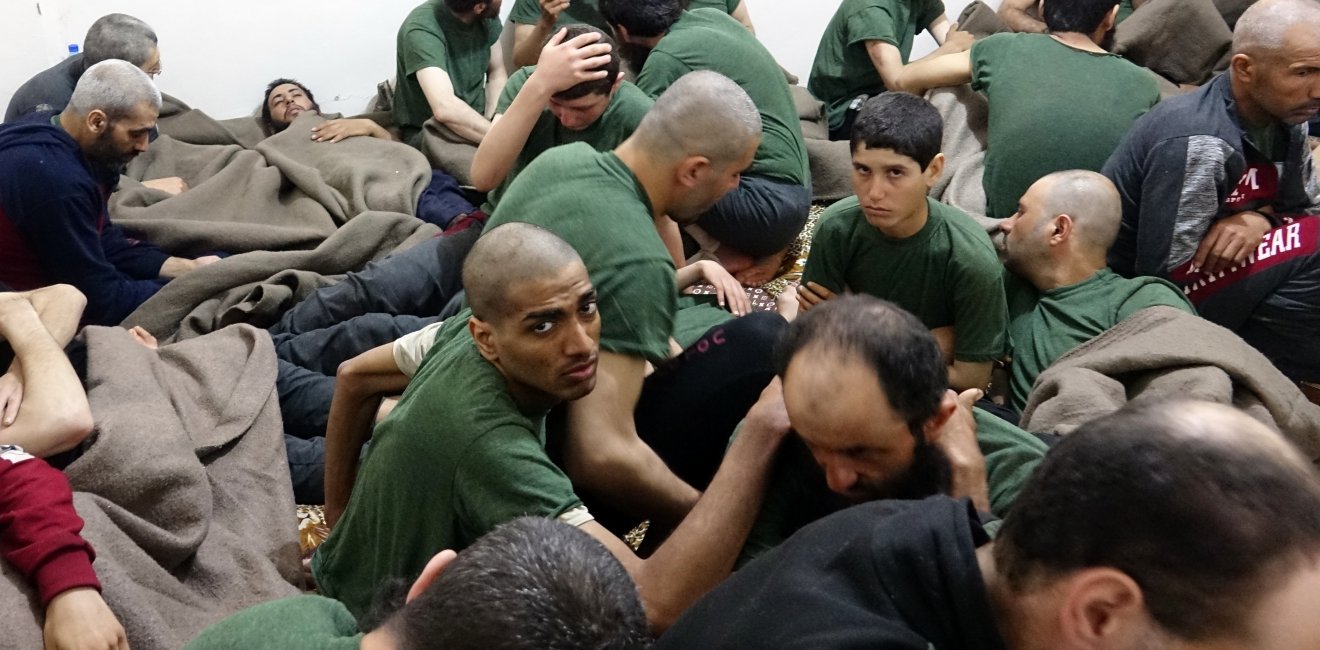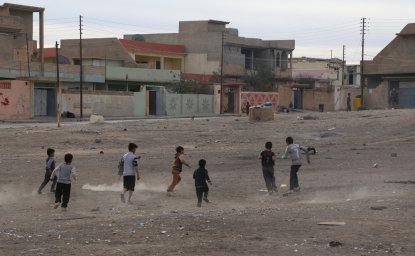How many ISIS prisoners are being held in Syria by the Syrian Democratic Forces? How many are locals? How many are foreigners? How many have been repatriated to their country of origin? How does the judicial system deal with them? How many has the SDF executed?
The SDF holds between 8,000 and 9,000 prisoners, and possibly more. Between 2,000 and 3,000 are Iraqi; between 4,000 and 5,000 are Syrians. Somewhat less than 2,000 are from a third country. A few hundred prisoners from third countries have been repatriated. Many of the remaining prisoners are from Europe, where there have been few repatriations, except two to Italy and some to Russia. The SDF has run low-level Syrian ISIS fighters—perhaps a few hundred—through the local judicial system in northeast Syria. Some have been released to local communities; some have been sentenced. The local judicial capacity has problems. In 2019, about half of the Iraqis held by the SDF were sent back to Iraq, but various problems have blocked a second tranche. I am unaware of any executions of ISIS fighters by the SDF.
How secure are the SDF prisons? Is there a danger that the prisons are breeding grounds for a new generation? How has the SDF tried rehabilitation—and how successfully? How many fighters and families of fighters have been reintegrated back into their communities? What are the challenges of reintegration—economically, socially and politically? Have any returned to jihadi activities?
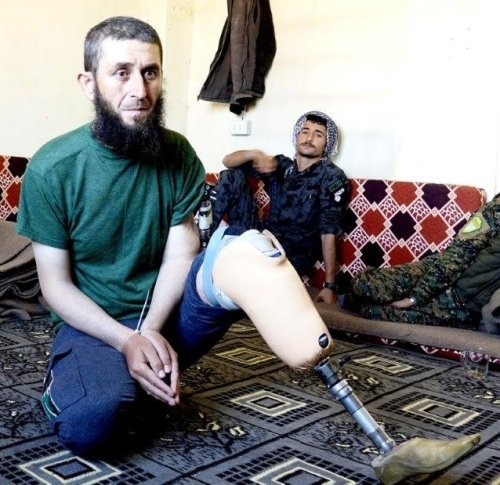
Relatively secure, as shown by the lack of breakouts by ISIS fighters during the chaotic Turkish incursion in October 2019. Both the prisons and the al Hol camp for ISIS family members are certainly breeding grounds. The SDF has tried rehabilitation of local Syrian fighters, but again the numbers are just in the hundreds.
How many ISIS prisoners does Iraq hold? How many are locals? How many are foreigners? How many have been repatriated to their country of origin? How does the judicial system deal with them? How many has Iraq executed?
Iraq holds thousands, including roughly 2,000 prisoners sent by the SDF in Syria to Iraq. Repatriation from Iraq has gone somewhat better as it has an internationally recognized government to deal with the issue. The Iraqi judicial system is generally harsh with ISIS fighters, and some have been executed.
How secure are the Iraqi prisons? Is there a danger that the prisons are breeding grounds for a new generation? How has Iraq tried rehabilitation—and how successfully? How many fighters and families of fighters have been reintegrated back into their communities? What are the challenges of reintegration—economically, socially and politically? Have any returned to jihadi activities?
Iraqi prisons are relatively secure, given the absence of major outbreaks. But they are not as good as the SDF facilities. I’m unaware of any significant Iraqi rehabilitation of ISIS fighters. Iraq does not have a history of successful rehabilitation. Jihadi fighters who are released often return to ISIS or comparable groups.
How many other ISIS family members are also held in Syria? Where? Under whose control? And how many are estimated to have escaped?
Almost 70,000 family members are held in al Hol. Only a small number have escaped. Some have been allowed to return to their Syrian communities. Almost half of the 70,000 are Iraqi. Despite negotiations between the SDF and the Iraqi government, administrative and other issues have blocked significant transfers. There have only been a few official transfers of family members as well as informal “movement” of family members.
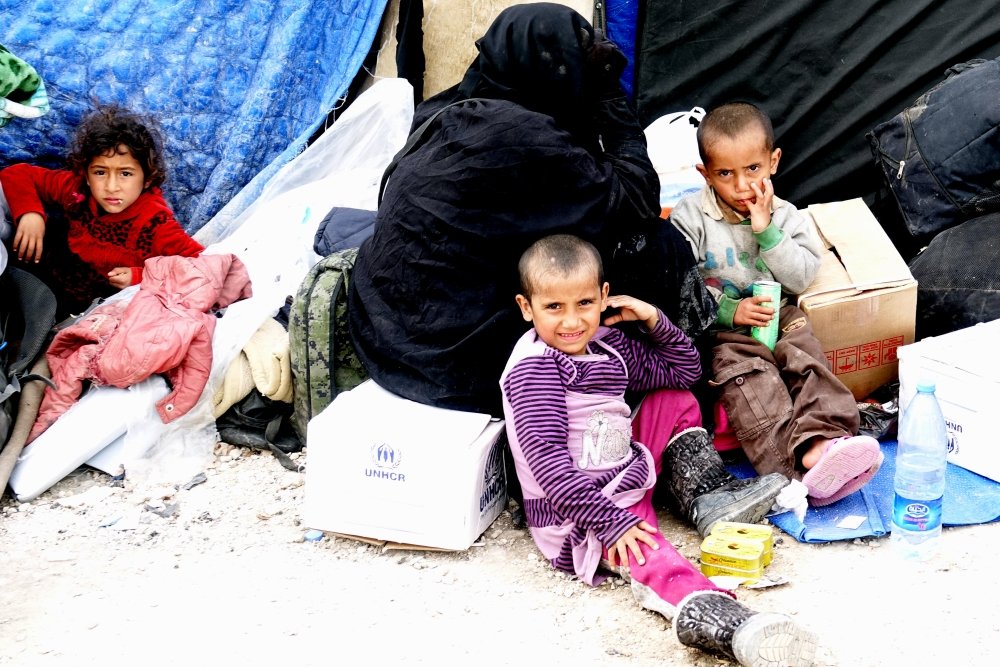
Is ISIS recruiting in these camps? How? And how successfully? With what goal?
Absolutely, ISIS is engaged in indoctrination and presumably preliminary recruitment in the camps. The goal is to form a new generation of ISIS leaders and fighters.
What are the dangers of a new generation being radicalized in the camps? Are there any tangible indicators?
The dangers are manageable, assuming that the overall capabilities of the coalition to defeat ISIS, the SDF, and the Iraqi military are maintained. The indicators would be any major disruption in Iraq or Syria that leads to one of two situations: First, the departure of the United States and others in the coalition. Or second, major conflict between Sunni Arabs and Iran or its allies. Either could lead to a rapid spread of ISIS ideology, recruits, and eventually terrorist capabilities.
Are the wives and children of ISIS fighters trying to create mini-ISIS caliphates in the camps? How?
Yes. They are engaged in the usual violence, intimidation and indoctrination of people already well-prepped for such indoctrination because they lived in areas formerly ruled by ISIS.
What are the prospects that ISIS or a successor group could carve out a caliphate in the Middle East again?
A physical caliphate like the one ISIS ran between 2014 and 2019 is highly unlikely. But a major terrorist movement rising to a major insurgency, such as al Qaeda in Iraq between 2004 and 2007, is quite possible under the right conditions.
Author
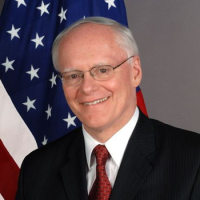
Former ambassador to Iraq and Turkey, and Special Envoy to the Global Coalition To Defeat ISIS

The Islamists
Learn more about Hamas and how it relates to similarly aligned organizations throughout the region. Read more


Middle East Program
The Wilson Center’s Middle East Program serves as a crucial resource for the policymaking community and beyond, providing analyses and research that helps inform US foreign policymaking, stimulates public debate, and expands knowledge about issues in the wider Middle East and North Africa (MENA) region. Read more

Explore More
Browse Insights & Analysis
An Act of Terror Cannot Occur on Russian Soil

US Intel: ISIS, al Qaeda, Hamas, & Hezbollah

